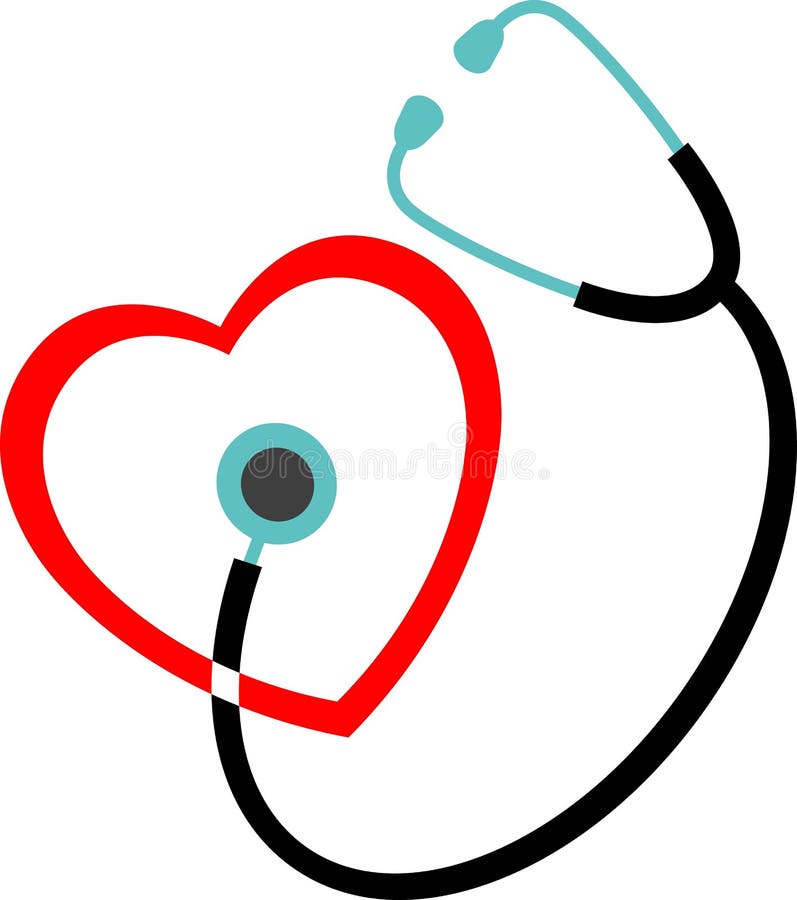Heart health after 60: Cardiology care for golden years
Heart health after 60: Cardiology care for golden years
Blog Article
The Role of Cardiology in Preventive Health and Wellness Services
Cardiology is increasingly recognized for its critical role in preventative health and health solutions. By highlighting positive techniques, cardiologists aim to lower the occurrence of cardio conditions. This strategy includes danger evaluations, way of life modifications, and regular screenings. Via these initiatives, people are motivated to take control of their heart health and wellness. However, the integration of innovation and cooperation with various other doctor raises important concerns concerning the future of preventative treatment. What might this evolution involve?

Understanding Preventative Cardiology
Understanding preventative cardiology involves recognizing its vital function in minimizing cardio illness threat via aggressive actions. This branch of medication highlights the value of way of life alterations, including workout, anxiety, and diet plan administration, to stop heart-related issues before they emerge. It supports for normal wellness screenings and education to empower people in making enlightened health and wellness choices.Preventative cardiology likewise encompasses the recognition of danger factors such as hypertension, diabetes, and high cholesterol, urging people to embrace healthier habits - Cardiology. By concentrating on prevention as opposed to response, this method not only boosts private health end results however also relieves the total burden on medical care systems. Additionally, it advertises cooperation among healthcare people, communities, and carriers, cultivating an alternative strategy to heart health. Eventually, recognizing preventative cardiology inspires a shift in the direction of a proactive frame of mind, prioritizing lasting health and wellness and wellness
Risk Analysis and Monitoring
Danger assessment is crucial in determining cardio risks that can lead to major health and wellness concerns. Reliable monitoring of these risks typically includes carrying out way of living alteration approaches, such as enhanced diet plan and boosted physical task. By comprehending and addressing these elements, individuals can significantly decrease their probability of creating cardio conditions.
Recognizing Cardiovascular Risks
Various factors add to cardio health and wellness, determining cardiovascular risks is important for effective avoidance and monitoring. Cardiovascular danger evaluation includes examining different aspects, including household history, lifestyle, age, and sex practices such as smoking cigarettes and physical lack of exercise. Additionally, health conditions like hypertension, diabetic issues, and high cholesterol significantly influence a person's risk account. Healthcare experts use devices such as threat calculators and biomarker tests to measure these risks and stratify individuals accordingly. Early recognition makes it possible for targeted interventions, directing people toward ideal monitoring methods. By acknowledging these risks, cardiologists can team up with people to produce personalized strategies that emphasize monitoring and positive treatment, eventually reducing the probability of damaging cardiovascular occasions.
Lifestyle Adjustment Approaches
Efficient way of living modification techniques play a vital duty in managing cardiovascular wellness and reducing associated threats. These techniques include nutritional modifications, increased physical task, and cigarette smoking cessation. A heart-healthy diet plan abundant in fruits, veggies, whole grains, and lean proteins can greatly lower cholesterol degrees and high blood pressure. Normal exercise, such as cardio exercises, enhances and reinforces the heart blood circulation. Additionally, stopping smoking cigarettes reduces the risk of cardiovascular disease and improves general health. Healthcare professionals commonly use risk analysis tools to tailor these alterations to private needs properly. By integrating lifestyle modifications into regular care, cardiologists can encourage people to organize their heart wellness, eventually causing enhanced end results and reduced health care expenses.
Lifestyle Alterations for Heart Health And Wellness
To preserve optimal heart health and wellness, individuals have to adopt a variety of way of living alterations that substantially minimize the possibility of heart diseases. A balanced diet regimen abundant in fruits, vegetables, entire grains, and lean proteins is important. Reducing hydrogenated fats, trans fats, and salt consumption can considerably decrease cholesterol degrees and blood pressure. Normal physical task, such as vigorous walking or biking for at least 150 minutes weekly, additionally plays a substantial function in boosting and strengthening the heart circulation.Additionally, managing stress and anxiety via methods like mindfulness and meditation can have a favorable effect on heart health. Staying clear of tobacco items and limiting alcohol consumption additionally add to a much healthier cardiovascular system. Keeping a healthy weight is important, as obesity is a significant threat element for heart problem. By including these way of life adjustments, people can foster not only their heart health yet also their overall wellness, bring about a more active and dynamic life.
The Value of Normal Testings
Along with way of life adjustments, normal testings play a necessary role in preserving heart wellness and avoiding cardio conditions. These assessments are substantial for identifying threat aspects such as hypertension, high cholesterol, and diabetes, which can bring about significant problems if left uncontrolled. Cardiologists advise routine evaluations to monitor heart function and discover problems early, permitting for prompt intervention.Screenings, which might consist of blood echocardiograms, examinations, and electrocardiograms, give essential information for customized therapy strategies. This proactive method equips individuals to make enlightened choices regarding their wellness, boosting general wellness. Furthermore, routine examinations promote a more powerful doctor-patient relationship, motivating open dialogue about heart wellness concerns.
Integrating Technology in Precautionary Treatment
Embracing innovation has revolutionized preventative care in cardiology, using ingenious tools that improve client surveillance and interaction. Wearable devices, such as smartwatches and health and fitness trackers, allow individuals to check their heart rate, task levels, and total health metrics in real-time. These tools not only supply immediate responses but additionally help with information sharing with doctor, permitting prompt interventions when necessary.Additionally, telemedicine has actually emerged as a famous feature in cardiology, allowing remote consultations and follow-ups. This access guarantees that people can receive care without the obstacles of traveling and time restrictions. Mobile wellness applications further support preventative measures by using personalized insights and suggestions for medication news adherence, way of life adjustments, and arranged testings.
Person Education and Empowerment
Empowerment with education and learning is essential in the domain of preventative cardiology, as educated patients are more probable to take part in aggressive health behaviors. By understanding their cardio wellness, people can make informed decisions relating to way of living alterations and adherence to therapy plans. Educational initiatives, including workshops, informative pamphlets, and on the internet sources, offer to improve individual expertise concerning threat factors such as hypertension, cholesterol levels, and the significance of routine exercise.Moreover, encouraging clients promotes a collective technique to wellness monitoring. When people know their conditions and the implications of their choices, they are most likely to join discussions with doctor, bring about customized treatment approaches. This collaboration not just advertises liability yet also improves inspiration for keeping a heart-healthy way of living (Cardiologist near linked here me). Ultimately, patient education and learning is a keystone of preventative cardiology, equipping individuals with the tools required to organize their cardiovascular health and wellness and well-being
Collaborating With Various Other Medical Care Professionals
Reliable individual education lays the foundation for collective initiatives among medical care specialists in the field of preventative cardiology. Cardiologists, health care physicians, nutritional experts, and mental wellness experts must operate in synergy to maximize client outcomes. By sharing strategies and understandings, these experts can create thorough treatment plans that address both physical and psychological elements of heart health.Regular interdisciplinary meetings foster interaction, making certain that all team participants are educated concerning person progress and obstacles. This collaboration assists in timely treatments and modifications to therapy plans, enhancing the performance of preventative measures.Furthermore, integrating innovation, such as common electronic health documents, enhances information availability and improves control efforts. This alternative strategy not only enhances individual adherence to lifestyle modifications yet also encourages individuals to take charge of their cardiovascular health. Eventually, collaboration among medical care professionals is crucial in promoting an aggressive approach to heart condition avoidance.
Regularly Asked Concerns
What Is the Distinction Between Cardiology and General Health Care?
Cardiology concentrates on diagnosing and dealing with heart-related problems, while basic healthcare includes a broader range of medical services resolving different health and wellness concerns - Cardiologist near me. Each plays an essential function in keeping overall wellness and health
Just how Often Should I See a Cardiologist for Precautionary Treatment?
The regularity of cardiologist brows through for preventative care differs based upon individual threat elements. Typically, annual examinations are suggested for those with status quo, while others might call for much less constant check-ups based on total heart health.
Can Anxiety Impact My Heart Health Dramatically?
Stress and anxiety can considerably impact heart wellness by adding to high blood pressure, swelling, and find out here unhealthy lifestyle selections. Individuals experiencing chronic stress may be at increased threat for cardiovascular issues, necessitating efficient anxiety management approaches for better heart health and wellness.
Exist Details Heart Problems I Should Recognize?
People should know conditions like hypertension, coronary artery illness, cardiac arrest, arrhythmias, and valvular cardiovascular disease. Acknowledging these problems early can result in much better management and boosted overall heart health results.

What Are the Expenses Related To Preventative Cardiology Providers?
The expenses related to preventative cardiology solutions can vary significantly. Variables such as area, sort of solution, and insurance policy coverage impact general expenditures, making it necessary for individuals to look for in-depth info details to their circumstances. Via these initiatives, people are motivated to take control of their heart wellness. It promotes for routine wellness screenings and education and learning to encourage people in making educated wellness choices.Preventative cardiology additionally incorporates the recognition of risk variables such as hypertension, diabetic issues, and high cholesterol, advising people to embrace much healthier habits. In addition, it advertises partnership amongst medical care individuals, service providers, and neighborhoods, promoting an all natural approach to heart health. Routine physical task, such as quick strolling or cycling for at the very least 150 minutes per week, additionally plays a substantial duty in improving and strengthening the heart circulation.Additionally, managing stress with strategies like mindfulness and meditation can have a positive effect on heart wellness. Cardiology specializes in detecting and dealing with heart-related problems, while general health treatment encompasses a wider range of clinical services attending to different health and wellness problems.
Report this page